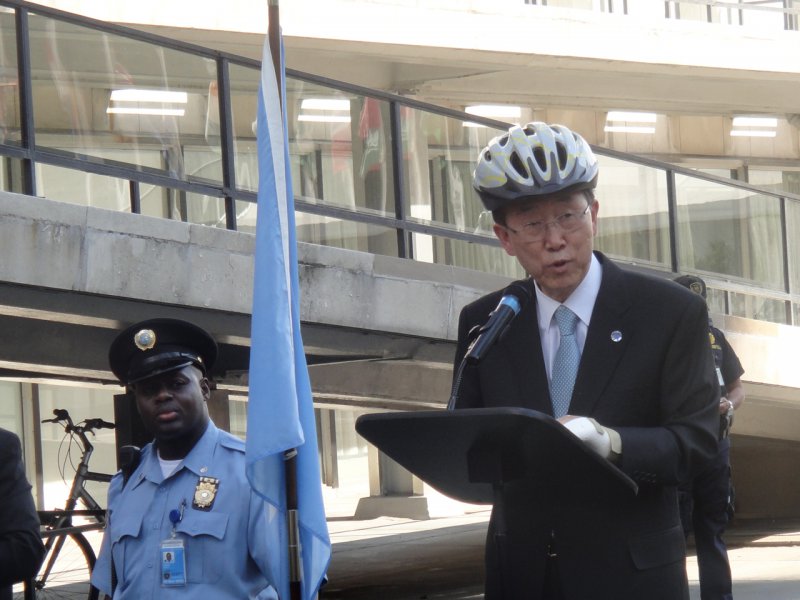Thoughts on Rio+20: The Future of Sustainable Transportation
According to The Partnership for Sustainable, Low Carbon Transport (SLoCaT), a voluntary multi-stakeholder initiative that contributes to the implementation of Agenda 21, Rio+5 and the Johannesburg Plan of Implementation (JPOI), “a stronger focus on public transport and non-motorized transport will strengthen access for low income groups. Reduced congestion and air pollution, as well as improved road safety, can translate into economic savings equal to several percentage points of GDP….
EMBARQ Makes Voluntary Commitment for Sustainable Transport
EMBARQ’s mission is to catalyze and help implementing sustainable transport solutions to improve quality of life in cities. Sustainable transport solutions holistically address social and environmental needs for current and future generations in a financially smart manner.
Expanding the Use of Electric Mobility: Options for sustainable urban transport
Presented by UN Department of Economic and Social Affairs (DESA)
Ralph Wahnschafft, DESA, chaired the event, which presented an overview of an initiative by the Global Forum for Human Settlements (GFHS) and the Renault-Nissan Alliance to provide zero-emission transport for Rio+20.
SLoCaT co-organizes UN Bike Ride for Rio+20
On the 8 th of June United Nations officials, diplomats and and members of civil society organizations
took part in a bike ride, co-organized by the SLoCaT Partnership to highlight the benefits of bicycling as a sustainable urban transportation method. The challenge is to get the world to use renewable energy to power our trains,planes, buses and boats. What is especially important for cities.

ITDP and Studio-X Rio Launch the Mobilidade+ Speaker Series
Kicking off ITDP’s busy roster of events leading up to Rio+20, the Mobilidade+ series was launched on June 5th at Studio-X Rio’s headquarters in the center of the city. The series – organized by ITDP Brazil and Studio-X (Columbia University) in partnership with UN-Habitat, SLoCat, C40 Rio, and Transport Ativo – aims to illustrate how urban mobility permeates diverse aspects of daily life in cities, and affects the lives of citizens beyond considerations of merely getting from one place to another.
Better Air Quality Conference on "Growing Cities, Healthy Cities"
The Better Air Quality conference (BAQ) will be held in Hong Kong from 5 to 7 December 2012. The BAQ 2012 on “Growing Cities, Healthy Cities” is reflecting on the challenge of creating livable cities with blue skies and a low carbon footprint in the face of increasing urbanization, and ensuring that people’s health is no longer affected by poor air quality. The BAQ conference is the flagship event of CAI-Asia. This biennial event brings leading experts, policy and decision makers together to network, learn and share experiences on air quality management.
UN-ESCAP joins SLoCaT Partnership
The United Nations Economic and Social Commission for Asia and the Pacific (ESCAP) is the regional development arm of the United Nations for the Asia-Pacific region. With a membership of 62 Governments, 58 of which are in the region, and a geographical scope that stretches from Turkey in the west to the Pacific island nation of Kiribati in the east, and from the Russian Federation in the north to New Zealand in the south, ESCAP is the most comprehensive of the United Nations five regional commissions.
Supporting fossil-fuel subsidy reform in Bangladesh, India and Indonesia
Three new reports build on the International Institute for Sustainable Development’s work with government and civil society on reforming fossil-fuel subsidies. Led by the IISD’s Global Subsidies Initiative, these studies shed light on the scale and impacts of fossil-fuel subsidies in Bangladesh, India and Indonesia, and provide practical advice on strategies for reform.